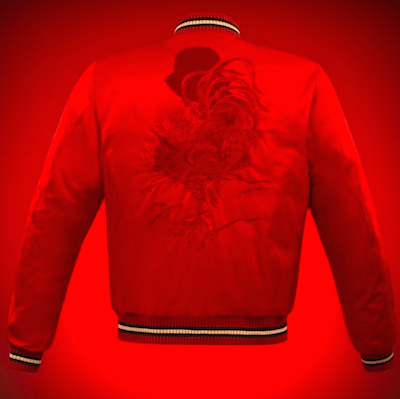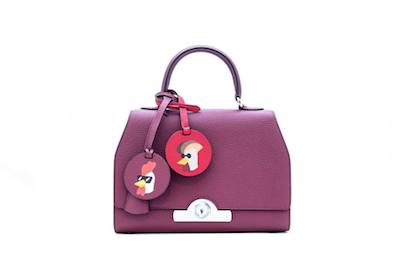 Hurun found that 68 percent of Chinese HNWIs shop at domestic retailers for gifts. Image credit: Chinese retailer Lane Crawford
Hurun found that 68 percent of Chinese HNWIs shop at domestic retailers for gifts. Image credit: Chinese retailer Lane Crawford
Gift giving is common practice among the Chinese, but the rising percentage of high-net-worth consumers self-gifting can provide luxury brands with an opportunity to forge a personal and emotional connection. According to Hurun Research Institute and MEC’s “China high-net-worth gifting” white paper report, 67 percent of affluent Chinese consumers self-gifted last year, with 74 percent of females buying presents for themselves. Although gifting for family members is most common, with nearly 100 percent of those surveyed sending their kin gifts, self-gifting in China is trending as it fits with “little but certain happiness” and “love and pamper myself,” concepts being embraced by consumers.
"Gifting is a fascinating subject, though the motivations and influences have changed over time, it is as relevant and important now as it ever has been," said Gordon Domlija, CEO of MEC China, Shanghai. "To truly understand consumers’ mindset, needs and behavior when it comes to luxury gifting we have to ground our insight in cultural and societal influence.
"China is unique in the world in gifting behavior. The ideas of Guanxi and Renqing are deeply rooted in the Chinese social philosophy of Confucianism, which stresses the importance of relationships and associating oneself with others in a hierarchical manner, to maintain social and economic order," he said.
 Moncler designed a Year of the Rooster bomber jacket for Chinese New Year 2017. Image credit: Moncler
An important point for luxury brands to take into consideration for gift-related planning is how product, brand and price comes into play when a gift is being considered prior to purchase.
For Chinese high-net-worth consumers buying a gift, a product’s good quality and craftsmanship is a top thought with 87 percent of those surveyed agreeing. Additional factors include a product’s practicality, uniqueness and the attractiveness of its packaging.
Brand determinants include if the label in question is “high-end, to gain ‘Mianzi,’” or the concept of social status, with 90 percent agreeing this is taken into consideration for a gift. Also, whether the brand is well-known and fits with the image of the gift recipient is factored into the decision process.
As for price, 61 percent think about if the retail value meets the recipient's expectations.
The product category also depends on gender, with men often gifting jewelry, flowers and handbags, and women giving watches, personal care devices and mobile tablets as presents.
Age is also a factor when giving a gift. Per the report, consumers under 35 years old give more diverse fashionable products such as accessories, fragrance and personal care goods such as cosmetics and skincare.
Moncler designed a Year of the Rooster bomber jacket for Chinese New Year 2017. Image credit: Moncler
An important point for luxury brands to take into consideration for gift-related planning is how product, brand and price comes into play when a gift is being considered prior to purchase.
For Chinese high-net-worth consumers buying a gift, a product’s good quality and craftsmanship is a top thought with 87 percent of those surveyed agreeing. Additional factors include a product’s practicality, uniqueness and the attractiveness of its packaging.
Brand determinants include if the label in question is “high-end, to gain ‘Mianzi,’” or the concept of social status, with 90 percent agreeing this is taken into consideration for a gift. Also, whether the brand is well-known and fits with the image of the gift recipient is factored into the decision process.
As for price, 61 percent think about if the retail value meets the recipient's expectations.
The product category also depends on gender, with men often gifting jewelry, flowers and handbags, and women giving watches, personal care devices and mobile tablets as presents.
Age is also a factor when giving a gift. Per the report, consumers under 35 years old give more diverse fashionable products such as accessories, fragrance and personal care goods such as cosmetics and skincare.
 Gifting accessories is popular among younger Chinese HNWIs. Image credit: Moynat
Also, as an increasing number of high-net-worth individuals turn attention to health and wellness, 90 percent of respondents say that health care products are popular gifts to give.
But, as in any culture, gift-giving can be challenging. Twenty-seven percent of high-net-worth individuals have difficulties when gifting due to being “unclear about giftees’ needs or preferences,” “time and effort spent in selecting gifts” and finding that the recipient of the gift tends to be “hard to impress.”
Unsurprisingly, women were found to enjoy the gift selection process enjoyable, while men “take shortcuts.”
To this point, Hurun and MEC suggest brands create more satisfying experiences for women through engagement tactics, and for men, organize gift-giving to be heightened by guidance.
Brands also need to be aware of where Chinese consumers are buying gifts to execute the best strategies. While 97 percent of high-net-worth individuals have purchased a gift at a bricks-and-mortar store, 69 percent have shopped for presents online.
Also, consumers in tier 1 and tier 2 cities view gifting in a more positive light than those living elsewhere in China.
Giving gifts of luxury
Hurun and MEC’s white paper also found that luxury gifts are increasing in popularity with 60 percent buying luxury goods more frequently compared with the last three years. Eighteen percent are buying luxury considerable more than they had in the past.
Per the report, 77 percent have gifted luxury items to others.
Top brands for gifting for occasions such as Chinese New Year include Apple, Cartier, Chanel and L.V. Moutai. Other gifting front-runners include Bulgari, Gucci, Hermès, Dior and Burberry.
Apple products are popular gifts for men, with 25 percent saying they would purchase an Apple device as a gift. Only 14 percent of female respondents agree with that choice.
Overall, the researcher institute has found Chinese interest in luxury has increased by 20 percent.
Gifting accessories is popular among younger Chinese HNWIs. Image credit: Moynat
Also, as an increasing number of high-net-worth individuals turn attention to health and wellness, 90 percent of respondents say that health care products are popular gifts to give.
But, as in any culture, gift-giving can be challenging. Twenty-seven percent of high-net-worth individuals have difficulties when gifting due to being “unclear about giftees’ needs or preferences,” “time and effort spent in selecting gifts” and finding that the recipient of the gift tends to be “hard to impress.”
Unsurprisingly, women were found to enjoy the gift selection process enjoyable, while men “take shortcuts.”
To this point, Hurun and MEC suggest brands create more satisfying experiences for women through engagement tactics, and for men, organize gift-giving to be heightened by guidance.
Brands also need to be aware of where Chinese consumers are buying gifts to execute the best strategies. While 97 percent of high-net-worth individuals have purchased a gift at a bricks-and-mortar store, 69 percent have shopped for presents online.
Also, consumers in tier 1 and tier 2 cities view gifting in a more positive light than those living elsewhere in China.
Giving gifts of luxury
Hurun and MEC’s white paper also found that luxury gifts are increasing in popularity with 60 percent buying luxury goods more frequently compared with the last three years. Eighteen percent are buying luxury considerable more than they had in the past.
Per the report, 77 percent have gifted luxury items to others.
Top brands for gifting for occasions such as Chinese New Year include Apple, Cartier, Chanel and L.V. Moutai. Other gifting front-runners include Bulgari, Gucci, Hermès, Dior and Burberry.
Apple products are popular gifts for men, with 25 percent saying they would purchase an Apple device as a gift. Only 14 percent of female respondents agree with that choice.
Overall, the researcher institute has found Chinese interest in luxury has increased by 20 percent.
 Luxury as choice gifts in China is on the rise. Image credit: Peninsula Hotels & Resorts
Hurun's "Chinese Luxury Consumer Survey” report from earlier this year equates the boost in interest with 90 percent of Chinese millionaires being more confident in China’s economic development. As a result, emigration from China is currently at the lowest point seen in five years (see story).
Luxury as choice gifts in China is on the rise. Image credit: Peninsula Hotels & Resorts
Hurun's "Chinese Luxury Consumer Survey” report from earlier this year equates the boost in interest with 90 percent of Chinese millionaires being more confident in China’s economic development. As a result, emigration from China is currently at the lowest point seen in five years (see story).
"I sincerely hope this on-trend analysis can provide valuable information for China's affluent in their gifting decisions, and at the same time, offer a reference point for brands looking to adjust their product range and branding according to their target market's preferences," said Rupert Hoogewerf, chairman and chief researcher at Hurun, Shanghai.
"The results of the 'Hurun Best of the Best Awards 2017' show that the market for gifts among China's high-net-worth individual is worth up to 300 billion yuan ($44 billion), and could potentially reach 390 billion yuan ($57 billion) in the next three years," he said.
